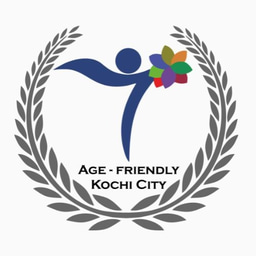Understanding Healthy Aging and the Need for a Comprehensive Aging Policy
Ageing in Kerala - to lead the response to promoting 'healthy ageing’ nationally
HEALTHY AGEING
Dr Sharon Anna Thomas
4/24/20242 min read


Understanding Healthy Aging
Healthy aging is a concept that has gained significant attention in recent years, as societies around the world are experiencing a demographic shift towards an aging population. It is important to define what exactly is meant by healthy aging, as it encompasses more than just the absence of disease or disability. According to the World Health Organization (WHO), healthy aging is "the process of developing and maintaining the functional ability that enables well-being in older age."
This definition emphasizes the importance of functional ability in older adults, which refers to their capabilities to be and do what they value. It encompasses various aspects of life, including meeting basic needs, learning, growing, making decisions, being mobile, building and maintaining relationships, and contributing to society. In other words, healthy aging is about maintaining physical, mental, and social well-being as we age.
The Need for a Comprehensive Aging Policy
In order to promote healthy aging and ensure the well-being of older adults, it is crucial to have a comprehensive aging policy in place. Such a policy should be interdisciplinary and inter-ministerial, involving various sectors and ministries to address the diverse needs and challenges faced by older adults.
The Ministry of Social Justice and Empowerment and the Ministry of Health and Social Welfare should take the lead in establishing and implementing this aging policy. By working together, these ministries can develop strategies and initiatives that focus on enhancing the functional ability and well-being of older adults.
A comprehensive aging policy should address a wide range of issues, including healthcare, social support, housing, transportation, employment, and community engagement. It should aim to create an environment that promotes healthy aging and enables older adults to live fulfilling and meaningful lives.
The Role of Interdisciplinarity
Interdisciplinarity is a key aspect of a comprehensive aging policy. It involves collaboration and cooperation between different disciplines, such as healthcare, social sciences, economics, and urban planning, to address the complex needs of older adults.
By bringing together experts from various fields, an interdisciplinary approach can provide a more holistic understanding of the challenges and opportunities associated with aging. It can lead to the development of innovative solutions and policies that promote healthy aging and improve the quality of life for older adults.
Furthermore, an interdisciplinary approach can help break down silos and foster collaboration between different sectors and ministries. This can lead to more effective and efficient policies and programs that address the diverse needs of older adults.
In conclusion, healthy aging is a multifaceted concept that goes beyond the absence of disease or disability. It is about maintaining functional ability and well-being in older age, enabling older adults to be and do what they value.
A comprehensive aging policy, under the leadership of the Ministry of Social Justice and Empowerment and the Ministry of Health and Social Welfare, is essential to promote healthy aging and ensure the well-being of older adults. This policy should be interdisciplinary and address various aspects of life to create an environment that supports and enables healthy aging.
